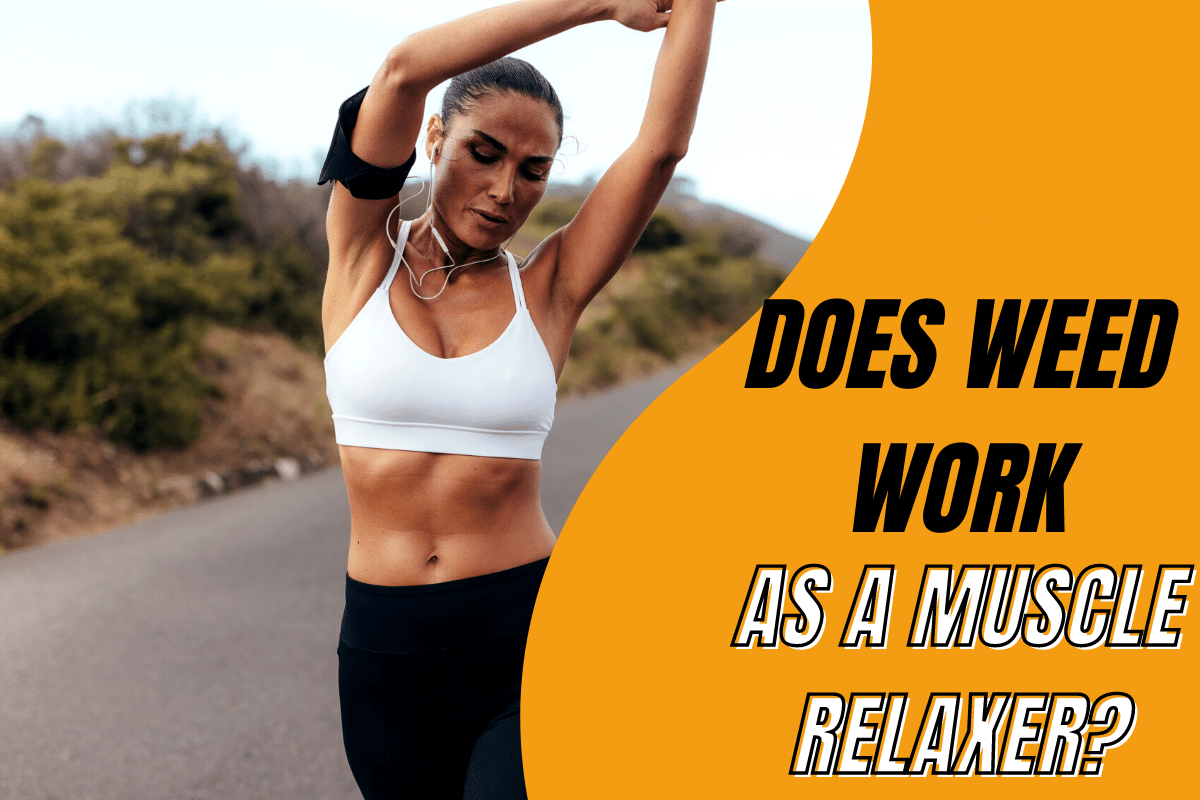In recent years, the conversation around cannabis has expanded beyond recreational use to encompass its potential therapeutic benefits. One such area of interest is its role as a muscle relaxer. But does weed really work to relax muscles, and what does the science say about it? This article delves into the potential of cannabis for muscle relaxation, supported by expert opinions and scientific studies.
Understanding Cannabis and Its Components
Cannabis contains numerous compounds, but the two most well-known are THC (tetrahydrocannabinol) and CBD (cannabidiol). THC is the psychoactive component that produces the “high,” while CBD is non-psychoactive and is often highlighted for its potential therapeutic benefits. Both of these compounds interact with the body’s endocannabinoid system, which plays a role in regulating various physiological processes, including muscle function and pain sensation.
Expert Opinions on Cannabis as a Muscle Relaxer
Dr. Ethan Russo – Neurologist & Cannabis Researcher
Dr. Ethan Russo, a prominent figure in cannabis research, suggests that certain components of cannabis, particularly THC, may possess muscle relaxant properties. He states, “THC has been shown to have muscle relaxant effects, but the exact mechanisms and potential side effects require more comprehensive research.” Dr. Russo’s work emphasizes the need for controlled studies to fully understand how cannabis impacts muscle relaxation.
National Institute on Drug Abuse (NIDA)
NIDA provides science-based information on drugs and their effects. According to their website, “Anecdotal evidence suggests that some individuals use cannabis for muscle relaxation. However, there is a lack of conclusive scientific data to support its effectiveness across all conditions, and potential side effects must be considered.” This underscores the need for caution and further research.
American Academy of Orthopaedic Surgeons (AAOS)
The AAOS recognizes the ongoing research into cannabis’s therapeutic effects, particularly for pain management, which is often linked to muscle tension. While they do not specifically endorse cannabis for muscle relaxation, they acknowledge that it may play a role in pain relief, indirectly aiding muscle relaxation.
Dr. Joseph Maroon – Professor of Neurological Surgery
Dr. Joseph Maroon, a professor of neurological surgery, highlights the benefits of medical marijuana for conditions involving muscle spasticity, such as multiple sclerosis. He advises, “Medical marijuana, containing both CBD and THC, has shown promise in reducing muscle spasticity. However, it is crucial to consult a doctor to determine the appropriate use and dosage.”
Project CBD (Non-Profit Organization)
Project CBD focuses on educating the public about cannabidiol and its potential benefits. While not directly focused on muscle relaxation, their resources on CBD’s anti-inflammatory properties are relevant. Inflammation can contribute to muscle tension, and by reducing inflammation, CBD might help alleviate muscle tightness.
Mayo Clinic
The Mayo Clinic offers a balanced view on cannabis use for muscle relaxation. They state, “There is anecdotal evidence supporting the use of cannabis for muscle relaxation. However, potential side effects like drowsiness and cognitive impairment, as well as the need for more research, must be considered.”
Scientific Studies on Cannabis and Muscle Relaxation
Cannabis for Chronic Pain: A Review of the Evidence
A review published by the National Institutes of Health (NIH) explores the potential of cannabis to manage chronic pain. While muscle relaxation is not the primary focus, the findings suggest that cannabis might aid in pain relief, which can indirectly result in muscle relaxation.
A Systematic Review of Cannabinoids for Muscle Spasticity
This systematic review examines the effects of cannabinoids, including THC, on muscle spasticity. It highlights promising results, particularly for conditions like multiple sclerosis, but emphasizes the need for more rigorous, high-quality research.
The Role of the Endocannabinoid System in Muscle Relaxation
Understanding the endocannabinoid system is crucial for exploring how cannabis might aid muscle relaxation. This hypothetical study title reflects ongoing research into how cannabinoids interact with this system to influence muscle function.
A Double-Blind Placebo-Controlled Trial on the Effectiveness of Inhaled THC for Muscle Relaxation
Conducting a double-blind placebo-controlled trial on inhaled THC could provide stronger evidence on its effectiveness for muscle relaxation. This type of study design is considered the gold standard for clinical trials, as it minimizes bias and provides more reliable results.
Personal Experiences with Cannabis for Muscle Relaxation
My Journey with Cannabis
As someone who has struggled with chronic back pain for years, I was curious about the potential benefits of cannabis. After consulting with my doctor, I decided to try a CBD oil tincture. I started with a low dose, gradually increasing it until I found the right amount that worked for me. Within a few weeks, I noticed a significant reduction in muscle tension and pain. This allowed me to enjoy activities that I had previously avoided, such as yoga and gardening.
A Friend’s Experience
A close friend of mine suffers from multiple sclerosis and experiences severe muscle spasticity. After incorporating medical marijuana into her treatment plan, she reported a noticeable decrease in muscle stiffness and spasticity. Her improved mobility has had a positive impact on her overall quality of life.
Practical Tips for Using Cannabis as a Muscle Relaxer
Consult a Healthcare Professional
Before using cannabis for muscle relaxation, it is crucial to consult with a healthcare professional. They can help determine the appropriate dosage and form (e.g., CBD oil, edibles, inhalation) based on your specific condition and medical history.
Start Low and Go Slow
When trying cannabis for the first time, start with a low dose and gradually increase it. This approach helps you find the optimal dose that provides relief without causing unwanted side effects.
Consider Different Forms
Cannabis is available in various forms, including oils, edibles, and vaporizers. Each form has different onset times and effects. For instance, inhaling cannabis provides quicker relief but may have a shorter duration of effect compared to edibles.
Monitor for Side Effects
While many people tolerate cannabis well, it can cause side effects such as drowsiness, dry mouth, and cognitive impairment. Monitoring your response and adjusting the dosage accordingly can help minimize these effects.
Quality Matters
Choose high-quality cannabis products from reputable sources. Look for products that have been third-party tested to ensure purity and potency. This is particularly important for CBD products, as the market is less regulated.
Conclusion
Cannabis, particularly its components THC and CBD, shows promise as a muscle relaxer. Expert opinions and preliminary studies suggest that it may help manage muscle tension and spasticity, especially in conditions like chronic pain and multiple sclerosis. However, more research is needed to fully understand its mechanisms and potential side effects.
Personal experiences highlight the potential benefits of cannabis for muscle relaxation, but it is crucial to approach its use responsibly. Consulting a healthcare professional, starting with a low dose, and choosing high-quality products can help maximize benefits while minimizing risks.
As research continues to unfold, cannabis may become a more widely accepted and utilized option for muscle relaxation and overall pain management. For now, those considering its use should stay informed and proceed with caution, always prioritizing their health and well-being.





